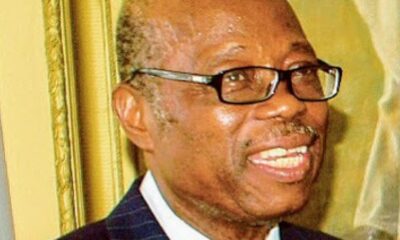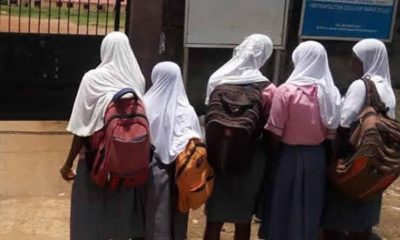News
What you need to know about Prince Bola Ajibola
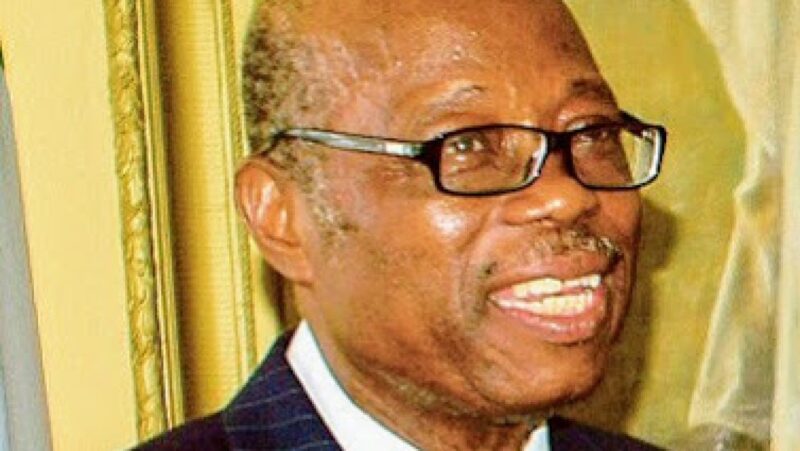
WHO IS JUDGE BOLA AJIBOLA?
A BRIEF PROFILE
His Excellency Judge Bola Abdul Jabbar Ajibola,
(SAN, KBE, D.Sc,D.Litt,FNIALS,FCIArb,CFR)
Born on 22nd March, 1934 to the Owu Royal Family, His Excellency Judge Bola Abdul Jabbar Ajibola attended Owu Baptist Day School, Ago Owu and Baptist Boys High School, Abeokuta, Ogun State for his primary and secondary school education between 1942 and 1955. In 1958, he was enrolled at Holborn College of Law, University of London from where he graduated in 1962 with a degree in law before he was called to the Bar at Lincoln’s Inn on 27 November 1962.
He was President of the Nigerian Bar Association (NBA), 1984-1985 and Attorney-General/Minister of Justice (1985-1991). From there, he moved to the International Court of Justice, Den Hague, Netherlands. After a three-year stint at the World Court in 1994, he further served as Judge Ad Hoc of the World Court from 1994 to 2002. He was appointed Judge of the Constitutional Court of the Federation of Bosnia and Herzegovina. He also served as the Nigeria High Commissioner to the United Kingdom between 1999 and 2002.
He was Chairman of Nigerian delegation to the Nigerian-Cameroon Mixed Commission on the Bakassi Peninsula. Prince Ajibola served as Vice President and later President of the World Bank Administrative Tribunal from 1994 to 2005; President, World Association of the World Jurists and Arbitrator, Ethiopia-Eritrea Boundary Dispute Commission.
READ ALSO:
- JAMB reschedules mock exam, fixes new dates for UTME
- Police arrest man, sons for attacking FRSC officials, burn patrol van
- FRSC hands over N27m found on accident spot to police
A voracious reader, prolific writer, renowned administrator, jurist and arbitrator of global acclaim, Prince Ajibola has attended numerous international conferences and has held international positions and arbitration assignments too numerous to mention here. In his professional career, he has provided outstanding legal consultancy services to several companies including Avon Cosmetics Limited; Masms Solicitors and Co. of London; Exxon, Houston, Texas, USA and Arthur Anderson and Co., London and Lagos.
In recognition of his outstanding imprints on the sands of time, Usmanu Dan Fodiyo University, Sokoto, awarded him Doctor of Literature (D. Litt) in 2003 while the Federal University of Agriculture conferred on him an Honorary Doctor of Agriculture (D. Agric) in 2004. As the Attorney-General and Minister of Justice between 1985 and 1991, he never took home a salary, asking that same should be distributed to the coffers of Federal Government (35%), Nigerian Bar Association (25%) and Charitable/humanitarian organisations (40%). The first Nigerian to be so selfless.
He also founded African Concern, a non-governmental organisation in Lusaka, Zambia in May, 1995 to promote peace, justice and harmony among peoples of Africa in order to eradicate the problems of refugees arising from political conflicts and natural disasters. This, he accomplished in association with the United Nations High Commissioner for Refugees to give succour to refugees in Nigeria, Liberia, Sierra Leone and Rwanda.
Prince Ajibola, an altruist, founded Islamic Mission for Africa in 1996, which gave birth to Crescent University, Abeokuta, a visionary initiative capable of building a new generation of graduates imbued with industry, moral uprightness and diligence as well as the inculcation of spiritual redevelopment in young men and women.
READ ALSO:
- MURIC to JAMB: We accept your apology, act on petitions written against Covenant, Canaanland Universities
- Labour party call for truce as state chairmen insist Abure is National Chairman
- Sad Easter as scores die in boat mishap in Bayelsa
Furthermore, the reputed legal icon and Islam’s ambassador has to his credit other awards and honours among which are: Knight of the Order of British Empire (KBE), 1989; Fellow, Chartered Institute of Arbitration (FCIArb); World Jurist Award 1987; Senior advocate of Nigeria (SAN), 1986; Fellow, Nigerian Institute of Advanced Legal Studies and Commander of the Federal Republic of Nigeria (CFR) among others.
Judge Bola Ajibola is the Founder/Proprietor, Crescent University, Abeokuta. Built on the pedestal of knowledge and faith, the university was established as a private academic institution under the banner of Islamic Mission for Africa(IMA).
It was established in consonance with her doctrine and vision: learning and character. The operating licence from the Federal Government of Nigeria was obtained from National Universities Commission(NUC) on June 9, 2005 by the then Minister of Education, Mrs Chinwe Nora Obaji.
Judge Bola Ajibola founded the university after selling his assets both in Nigeria and abroad to achieve the noble cause of assisting the Nigerian populace in closing the widening gap between attainable potential students’ population and limited space in public universities.Of his vision,accomplishment of Crescent University is the ultimate.
The university which prides itself as Citadel of Academic and Moral Excellence has graduated 12 sets at undergraduate level and 5 sets at Master’s level.Today,many of these products are performing excellently well both in further studies and employment.Some of them who made First Class in their first degree have also clinched Distinction/PhD grades in their MSc programmes abroad and government-owned universities in Nigeria.Only recently,Adedeji Ajayi,who bagged his BSc and MSc degrees from Crescent University got a keenly contested appointment as a senior journalist (Planning) with the British Broadcasting Corporation(BBC) while employers of labour have consistently lauded Crescent University products for good conduct.
This is, in fact, in concord with Judge Ajibola’s mission that “we are not out to produce brilliant beasts but global citizens” who will bring about peaceful coexistence among nations of the world.
WHO IS JUDGE BOLA AJIBOLA
News
SERAP sues Wike, 36 govs over N5.9tn, $4.6bn loans
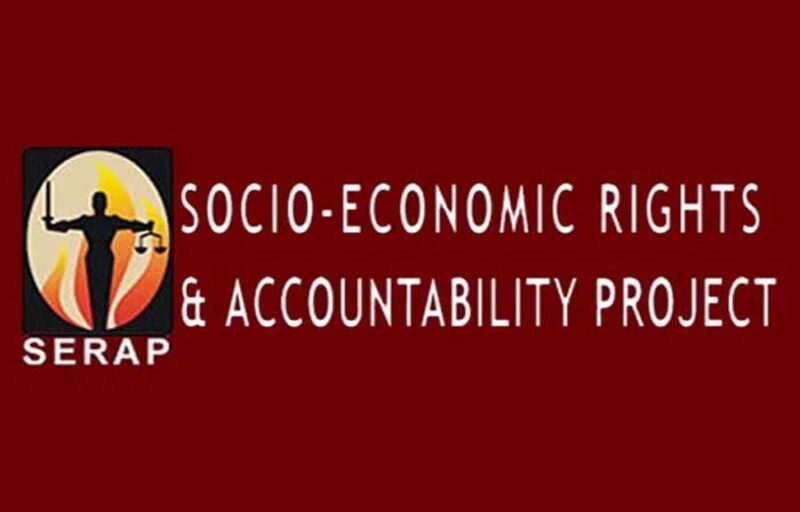
SERAP sues Wike, 36 govs over N5.9tn, $4.6bn loans
Socio-Economic Rights and Accountability Project (SERAP) has filed a lawsuit against Nigeria’s governors and the Minister of the Federal Capital Territory, Abuja, Mr Nyesom Wike “over their failure to account for N5.9 trillion and $4.6 billion loans obtained by their states and the FCT, and to publish copies of the loan agreements, including details and locations of projects executed with the loans.”
The suit followed the disclosure last month by Governor Uba Sani of Kaduna State that the immediate past administration of Nasir El-Rufai left $587m, N85bn debt and 115 contractual liabilities, making it impossible for the state to pay salaries.
In the suit number FHC/ABJ/CS/592/2024 filed last Friday at the Federal High Court, Abuja, SERAP is asking the court to “direct and compel the governors and Mr Wike to account for N5.9trn and $4.6bn loans obtained by their states and the FCT and to publish copies of the loan agreements, location of projects executed with the loans.”
SERAP is also asking the court to “direct and compel the governors and Mr Wike to invite the Economic and Financial Crimes Commission (EFCC) and the Independent Corrupt Practices and Other Related Offences Commission (ICPC) to investigate the spending of all the loans obtained to date by their states and the FCT.”
In the suit, SERAP is arguing that “It is in the public interest to grant the reliefs sought. Nigerians have the right to see and scrutinise the loan agreements and know the details of how the domestic and external loans obtained by the governors and FCT minister are spent.”
According to SERAP, “Opacity in the spending of the loans obtained by the governors and Mr Wike would continue to have negative impacts on the fundamental interests of the citizens.”
SERAP is also arguing that, “Many states and the FCT are reportedly spending public funds which may include the loans obtained by them to fund unnecessary travels, buy exotic and bulletproof cars and generally fund the lavish lifestyles of politicians.”
READ ALSO:
- Chelsea thrash West Ham to stay on track for Europe
- Poor power supply: Your cup is full, IPOB tells Enugu DisCo
- Nigerian soldier accused of sleeping with colleague’s wife dismissed
SERAP is also arguing that, “Many states and the FCT are also allegedly mismanaging public funds which may include domestic and external loans obtained from bilateral and multilateral institutions and agencies.”
According to SERAP, “Many states and the FCT reportedly owe civil servants’ salaries and pensions. Several states are borrowing to pay salaries. Millions of Nigerians resident in the state and FCT continue to be denied access to basic public goods and services such as quality education and healthcare.”
According to SERAP, “Transparency in the spending of the loans obtained by the states and FCT is fundamental to increase accountability, prevent corruption, and build trust in democratic institutions with the ultimate aim of strengthening the rule of law.”
The suit filed on behalf of SERAP by its lawyers Kolawole Oluwadare, Kehinde Oyewumi and Ms Valentina Adegoke, read in part: “States and the FCT should be guided by transparency and accountability principles and proactively account for the loans obtained and publish copies of the loan agreements.”
“Widely publishing copies of the loan agreements and spending details of the loans obtained would ensure that persons with public responsibilities are answerable to the people for the performance of their duties in the management of public funds.”
“State governors and Mr Wike cannot hide under the excuse that the Freedom of Information Act is not applicable to their states and the FCT. The legal obligations to publish the information sought are also imposed by the provisions of the Nigerian Constitution and the African Charter on Human and Peoples’ Rights.”
“According to Nigeria’s Debt Management Office, the total public domestic debt portfolio for the country’s 36 states and the Federal Capital Territory is N5.9 trillion. The total public external debt portfolio is $4.6 billion.”
“The domestic and external loans obtained by the states and the FCT are vulnerable to corruption and mismanagement. The states and FCT have a responsibility to ensure transparency and accountability in how any loans obtained by the states and FCT are spent, to reduce vulnerability to corruption and mismanagement.”
“Directing and compelling the states and FCT to publish copies of the loan agreements would allow Nigerians to scrutinise them, and promote transparency and accountability on the spending of public funds including the loans obtained.”
READ ALSO:
- Just in: List of ex-governors under probe over N2.187tn fraud fabricated, says EFCC
- Nollywood veteran Shan George weeps as fraudster clears ₦3.6m from her account (VIDEO)
- Haaland four goals propel Man City to 5-1 victory against Wolves
“Providing and widely publishing the details of the spending of the domestic and external loans obtained by the states and FCT would enable Nigerians to effectively and meaningfully engage in the management of the loans.”
“The constitutional principle of democracy also provides a foundation for Nigerians’ right to know the details of loan agreements and how the loans obtained are spent. Citizens’ right to know promotes openness, transparency, and accountability that is in turn crucial for the country’s democratic order.”
“The effective operation of representative democracy depends on the people being able to scrutinize, discuss and contribute to government decision making, including on the spending of loans obtained by the states and FCT.”
“To do this, they need information to enable them to participate more effectively in the management of public funds by their state governments and the FCT.”
“The public interest in obtaining information about expenditures relating to the loans obtained by the states and FCT outweighs any privacy or other interest.”
“The oversight afforded by public access to such details would serve as an important check on the activities of the states and FCT and help to prevent abuses of the public trust.”
“There is a significant risk of mismanagement or diversion of funds linked to loans obtained by state governments and the FCT. The accounts of Nigeria’s 36 states and the FCT are generally not open to public scrutiny.”
“The Nigerian Constitution, human rights and anticorruption treaties to which Nigeria is a state party also impose obligations on the states and FCT to prevent mismanagement or diversion of public funds including the loans obtained.”
“Many years of allegations of corruption and mismanagement of public funds including the loans obtained by the states and FCT have contributed to widespread poverty, underdevelopment and lack of access to public goods and services.”
No date has been fixed for the hearing of the suit filed by SERAP.
SERAP sues Wike, 36 govs over N5.9tn, $4.6bn loans
News
Just in: List of ex-governors under probe over N2.187tn fraud fabricated, says EFCC

Just in: List of ex-governors under probe over N2.187tn fraud fabricated, says EFCC
The Economic and Financial Crimes Commission (EFCC) has denied releasing a list of ex-governors being investigated for alleged corruption.
It described the list currently being circulated as a mere fabrication and urged members of the public to ignore it.
This was disclosed in a statement by Dele Oyewale, EFCC’s head of media and publicity.
It declared the report published by some media as “false and mischievous”.
The EFCC Press Statement
List of Ex- Govs Under Investigation for Alleged Corruption Not From EFCC
The Economic and Financial Crimes Commission, EFCC, feels obliged to dissociate itself from a phantom report circulating in sections of the media claiming it has released a full list of ex- governors being investigated for alleged corruption.
The report headlined: “EFCC Releases Full List of 58 Ex-Governors that Embezzled N2 .187 Trillion”, in one of the news outlets, is false and mischievous as the Commission neither issued the said list nor entertained discussions on investigation of ex-governors with any news medium.
This invariably means that the so-called list is a disingenuous fabrication designed to achieve motives known only to the authors.
The public is enjoined to ignore the report as it is false and misleading.
The media is advised to endeavour to crosscheck facts pertaining to matters under investigation with the Commission to avoid misleading the public with false and inaccurate reports.
Dele Oyewale
Head, Media & Publicity
May 5, 2024
News
Nigeria to reduce electricity supply to Niger Republic, Benin, Togo

Nigeria to reduce electricity supply to Niger Republic, Benin, Togo
Not more than six per cent of total electricity from the national grid will be supplied to cross-border customers in Benin Republic, Niger and Togo.
The Nigerian Electricity Regulatory Commission (NERC) gave this directive to the System Operator (SO), a department in the Transmission Company of Nigeria (TCN).
NERC said this was done in a bid to increase power availability to Nigerians.
This is coming as the Minister of Power, Adebayo Adelabu, has reportedly disclosed that the Federal Government and the Nigerian Sovereign Investment Authority (NSIA) would make capital injections of N750 billion and N250 billion annual debt financing to bridge the huge electricity metering gap in the country that currently stands at about seven million, according to a ThisDay report.
These details are contained in a document tagged: ‘Interim Order on Transmission System Dispatch Operations, Cross-border Supply and Related Matters’.
The power sector regulator stated that the directive would last for six months in the first instance before a review.
Nigeria supplies a portion of the electricity it generates to some of its neighbours such as the Benin Republic, Niger Republic and Togo.
NERC’s order, dated April 29, 2024, and which became effective from May 1, 2024, was signed by the commission’s Chairman, Sanusi Garba, and Vice Chairman, Musiliu Oseni.
The electricity sector regulator stressed that following the implementation of the April 2024 supplementary order, the commission had observed sub-optimal grid dispatch operation practices.
READ ALSO:
- Edo, Delta areas to experience two-week power outage – TCN
- Coastal highway project to disrupt DStv, GOtv services
- Former Minister of Education Gbagi dies at 62
It argued that this had compromised the Distribution Companies’ (Discos) ability to deliver on its Service Based Tariff (SBT) committed service levels to end-use customers with a significant impact on market revenues.
NERC said the system operator’s sole reliance on limiting Discos’ load off-take/allocation in managing recurring grid imbalances while prioritising international off-takers and Eligible Customers (ECs) is neither efficient nor equitable.
The practice so far adopted by the operator in managing generation availability, it said, had caused significant hardship to Discos’ customers, comprising industrial, commercial, and residential, especially during peak demands while prioritising delivery to other bilateral contracts, including export to international customers.
“The commission hereby orders as follows: The system operator shall develop and present to the commission for approval within seven days from the issuance of this order a pro-rata load-shedding scheme that ensures equitable adjustment to load allocation to all off-takers — Discos, international customers, and eligible customers — in the event of a drop in generation and other under-frequency related grid imbalances necessitating critical grid management.
READ ALSO:
- Russia adds Zelensky to ‘wanted’ list of criminals
- Iheanacho eyes Aston Villa, turns down Leicester’s £65k weekly offer
- 1966 coup: Ohanaeze denies apology to Fulani
“The system operator shall implement a framework to log and publish hourly readings and enforce necessary sanctions for violation of grid instructions and contracted nominations by off-takers in line with the grid code and market,” it stated.
Among others, it further directed that the system operator shall publish and notify all market participants and the commission of the previous day’s hourly log readings of off-take by market participants and the market settlements report by 12:00 noon of the next day.
“The system operator shall ensure that the maximum load allocation to international off-takers in each trading hour shall not be more than six per cent of the total available grid generation.
“The aggregate capacity that can be nominated by a generating plant to service international off-takers shall not be more than 10 per cent of its available generation capacity unless in exceptional circumstances a derogation is granted by the commission.
“The system operator shall henceforth cease to recognise any capacity addition in bilateral transactions between a generator and an off-taker without the express approval of the commission,” it added.
It urged the system operator and TCN to immediately initiate and install integrated Internet of Things (IoT) meters at all off-take and delivery points of eligible customers, bilateral supplies, cross-border trades, and outgoing 33kV feeders of the Discos to provide real-time visibility of aggregate off-take by grid customers.
“The installation of and streaming of data from the IOT meters should be completed within three months from the date of this order,” it added.
Nigeria to reduce electricity supply to Niger Republic, Benin, Togo
-

 International3 days ago
International3 days agoUS students slam Biden’s comments on Gaza encampments
-

 Business3 days ago
Business3 days agoNaira depreciates again, trades at N1,402/$
-
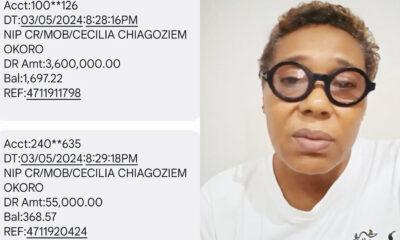
 Entertainment14 hours ago
Entertainment14 hours agoNollywood veteran Shan George weeps as fraudster clears ₦3.6m from her account (VIDEO)
-

 International3 days ago
International3 days agoDam collapses, death toll rises in Brazil floods
-
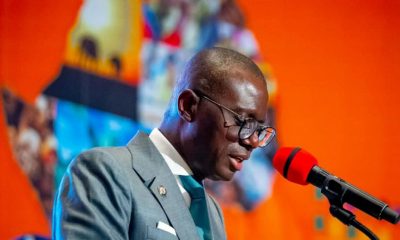
 News3 days ago
News3 days agoLagos GDP hits N41tn, earns N433bn from IGR
-

 News2 days ago
News2 days agoDon’t host US, French military bases in Nigeria, northern leaders warn Tinubu
-

 International15 hours ago
International15 hours agoGaza: Thousands rally for hostage deal as ceasefire talks continue
-

 Sports16 hours ago
Sports16 hours agoRonaldo’s hat-trick leads Al Nassr to 6-0 victory over Al Wehda







